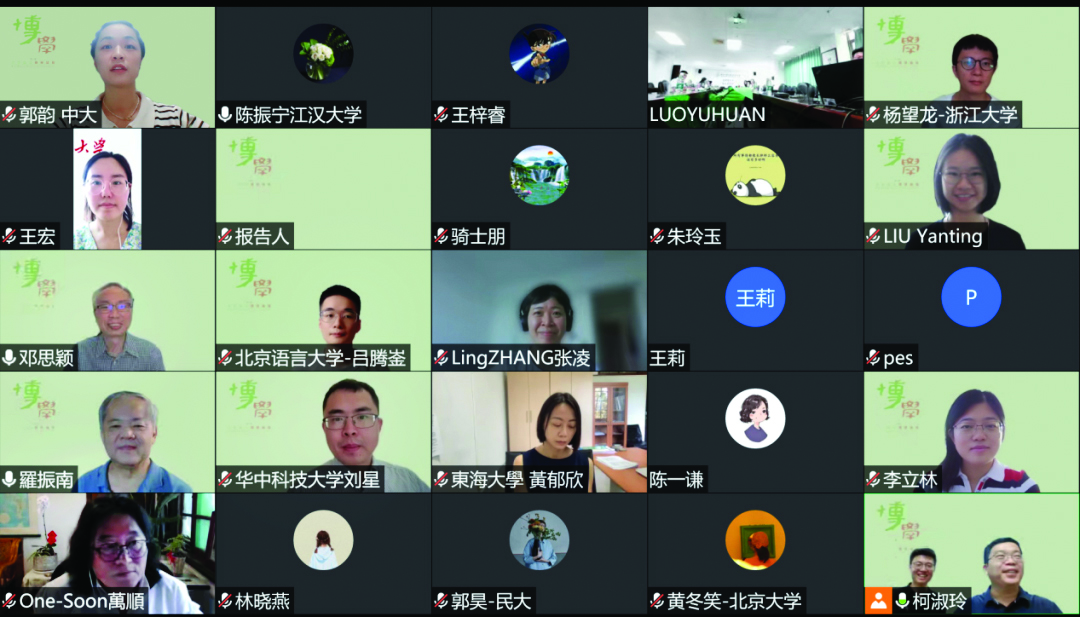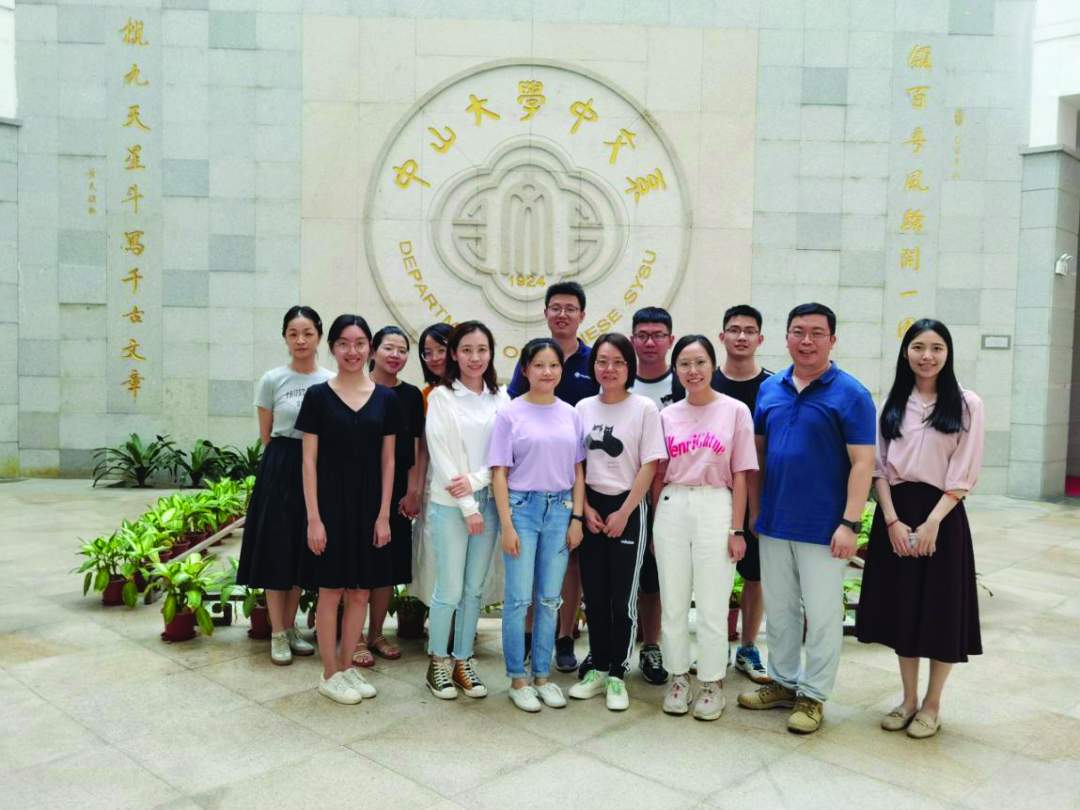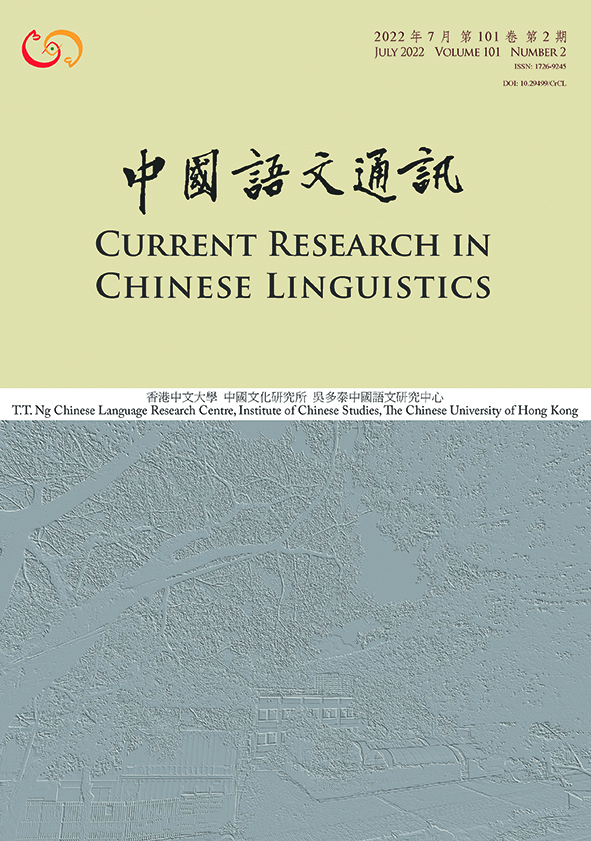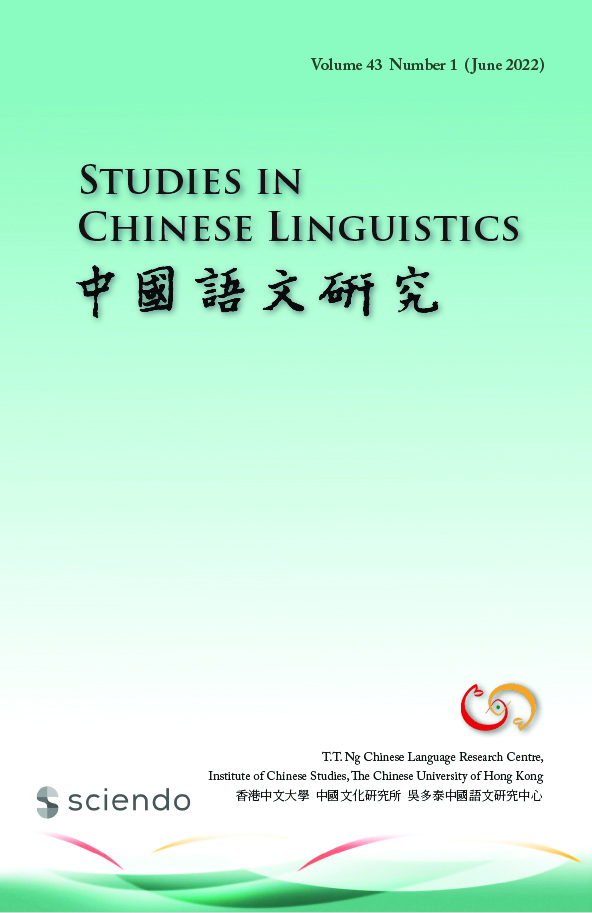The Eighth Inter-Regional Forum on Dialectal Grammar
The Inter-Regional Forum on Chinese Dialectal Grammar (IRF) was initiated by The Chinese University of Hong Kong and Sun Yat-sen University in 2015 and extended its partnership with Fudan University in 2017, which has become an academic event organised rotationally by these three institutions as a platform intended to foster research on dialectal grammar under a comparative approach, focusing on southeastern Chinese dialects like Yue and Wu dialects, to promote interregional studies, and to strengthen intellectual exchange and dialogue among researchers from different regions.
The Eighth Inter-Regional Forum on Dialectal Grammar organised by the Department of Chinese, Sun Yat-sen University and co-organised by the T.T. Ng Chinese Language Research Centre was held on 6–7 August, 2022. For the details of the forum, please visit http://www.cuhk.edu.hk/ics/clrc/irf/.



Current Research in Chinese Linguistics (Volume 101, Number 2)
Current Research in Chinese Linguistics (volume 101, number 2) has been released. There are 11 articles in this issue.
- Zhenning Chen and Zhenyu Chen: The Study of the Origin of the Mood Particle Ne ( 呢) Based on the Development of Topic-only Questions
- Yan Hong and Huayong Lin: The Function and Evolution of Zhu in Chaozhou Dialect
- Yang Xiao: The Mood Particle “to0” in Chaoyang Min Dialect: In Comparison with the “Ne” in Mandarin Chinese
- Shuling Ke: Lo21, Ne21 and Li33 in Chao’an Dialect
- Fengling Xu: [tsu22] and Related Sentence-final Particles of Haifeng Dialect in Eastern Guangdong
- Qiuling Deng: The Sentence-final Particles Na and Ne in the Early Hakka Documents and Modern Meixian Hakka
- Maki Iida: The Lexicalization of the Discourse Marker M4zi1ne1 in Cantonese
- Wenhan He and Xiaolei Fan: On the Distinction and Merger of Tense and Aspect Words “Ga” and “Li” in Shaoyang Dialect in Xiang District
- Siaw-Fong Chung and Weiting Tseng: The Constructions of KIND Metaphors
- Sung-Lin Chen: Research on Narratives of Medical Language Related to the COVID-19 Epidemic: Language, Events, and Times
- Hantao Xu: On the Implicit Differences between Hong Kong Chinese Vocabulary and General Chinese
PDF copies of these articles can be downloaded freely via http://www.cuhk.edu.hk/ics/clrc/.

Studies in Chinese Linguistics (Volume 43, Number 1)
Studies in Chinese Linguistics (volume 43, number 1) has been released. There are three articles in this issue:
- Richard S. Kayne: Antisymmetry and Externalization
- Huei-Ling Lin: On the Syntax of Null Clausal Complements in Taiwan Southern Min
- Bo Hu, Hong Chen: Subject Raising in Chinese Modal Auxiliary Verb Constructions: A-movement or A'-movement?
This is an open-access journal distributed by Sciendo (formerly known as De Gruyter Open). PDF copies of these articles can be downloaded freely via
http://www.cuhk.edu.hk/ics/clrc/. |
















